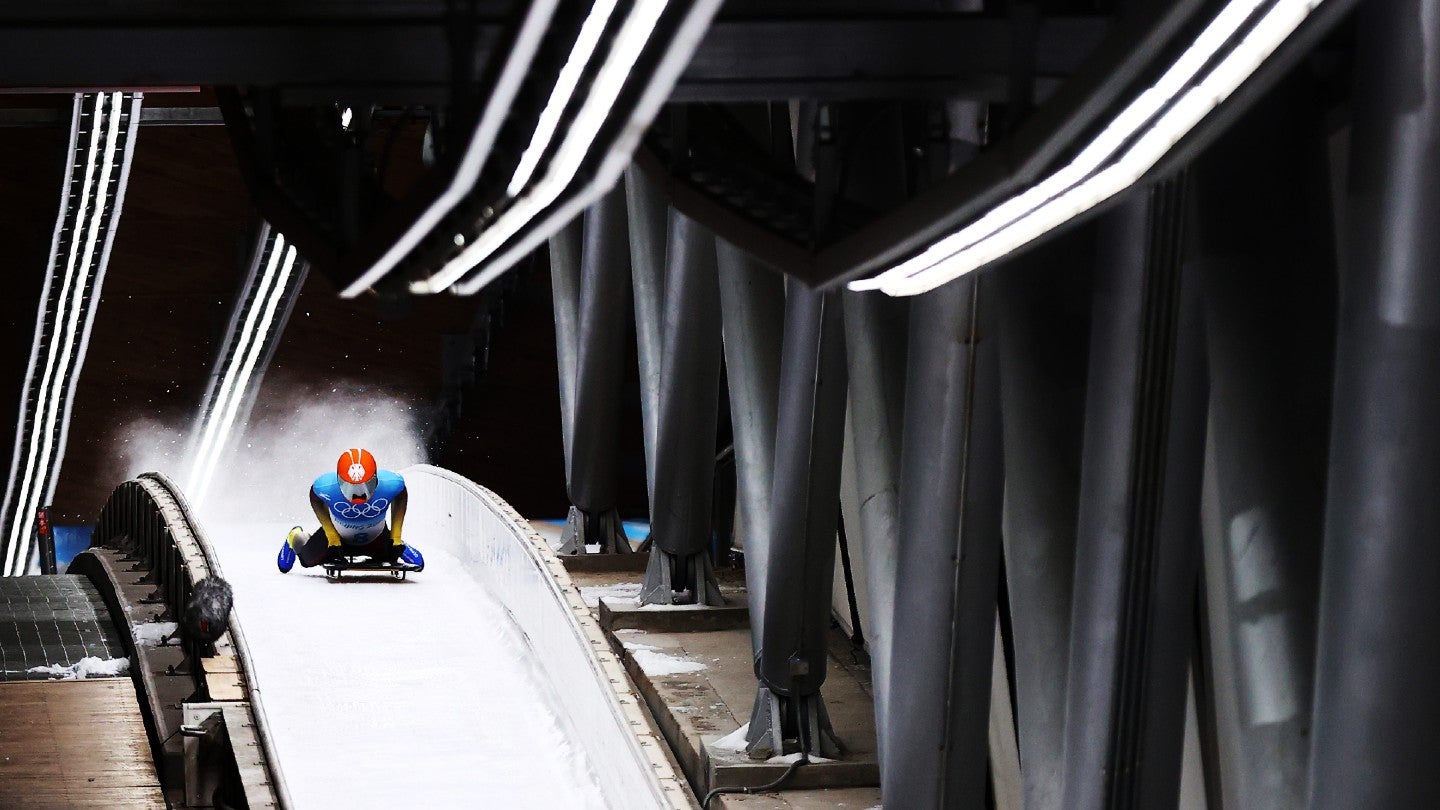
Organizers for the Milano-Cortina 2026 Winter Olympics are seeking a partner nation to host its sliding events after the Italian government refused to help fund the redevelopment of a venue within the country.
Giovanni Malago, the 2026 games organizing chief, informed an International Olympic Committee (IOC) meeting today it has abandoned plans to rebuild the Eugenio Monti track in Cortina d’Ampezzo after costs spiraled from the initial estimate of €50 million to €53 million.
The Eugenio Monti track, which was used for the 1956 Winter Olympic Games but destroyed 15 years ago, was slated to host the bobsleigh, skeleton, and luge events at Milano-Cortina 2026.
The government’s decision, made after growing opposition to the plans due to its environmental and financial impact, as well as the committee’s failure to secure any bids for the tender to rebuild the track, left it with no choice but to look for an established sliding center outside the country.
Innsbruck, Austria, has since offered the use of its sliding track for the games, while Switzerland’s St. Moritz is also another option.
Addressing delegates at the IOC session in Mumbai, India, Malago said: “As recently as two days ago, the Government informed us to consider the best and most sustainable option to not go ahead with the Cortina Sliding Centre and move the sliding center to an already existing and working venue.

US Tariffs are shifting - will you react or anticipate?
Don’t let policy changes catch you off guard. Stay proactive with real-time data and expert analysis.
By GlobalData“As a result, Milano Cortina 2026 has to identify another venue outside Italy.
“We are already working to explore all possible solutions and alternatives together with the IOC and the international federations, before submitting the choice to our board for final approval.
“In this regard, it's important to remember a decision like this will impact the operation and has consequences for the budget of the organizing committee.”
Kristin Kloster Aasen, chair of the IOC coordination commission for Milan-Cortina 2026, added: “This responsible commitment reinforces the position of the IOC that this venue needed to be reconsidered as the permanent legacy was not clear.
“We welcome therefore this decision that builds on Agenda 2020's direction that no permanent venues should be built if there is not a demonstrated legacy plan for it.”
The IOC has encouraged Olympic organizers to limit costs and their environmental impact by using established sporting venues or building temporary structures to stage events if there is not a proven need for a new building in local communities.
It will be the first time in Winter Olympic history that an event will be staged outside the host country; however, it has happened at two previous summer games.
The 1920 Olympics in Antwerp’s final sailing events were moved to Amsterdam, the Netherlands over issues to do with the course in Oostende, while the 1956 Olympic in Melbourne’s equestrian events were moved to Stockholm, Sweden due to Australia’s strict quarantine laws.
The news comes amid a raft of new announcements made by the IOC during its session in India, including its decision to award the hosts of the 2030 and 2034 Winter Olympics and Paralympics at the same time due to challenges posed by climate change.
During the session's first day (October 15), Indian Prime Minister Narendra Modi announced the country’s interest in hosting the 2036 Olympic and Paralympic Games, while IOC president Thomas Bach unveiled plans to launch an inaugural Olympic Esports Games.
IOC members also urged Bach to alter Olympic rules on term limits to lengthen his reign as president of the governing body.



